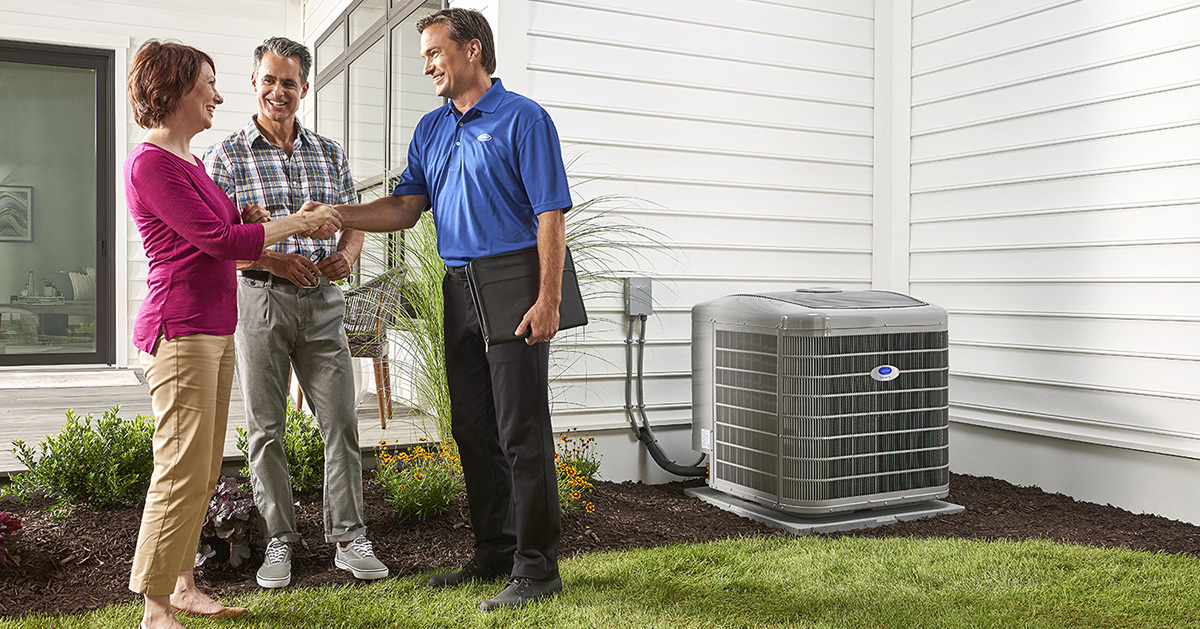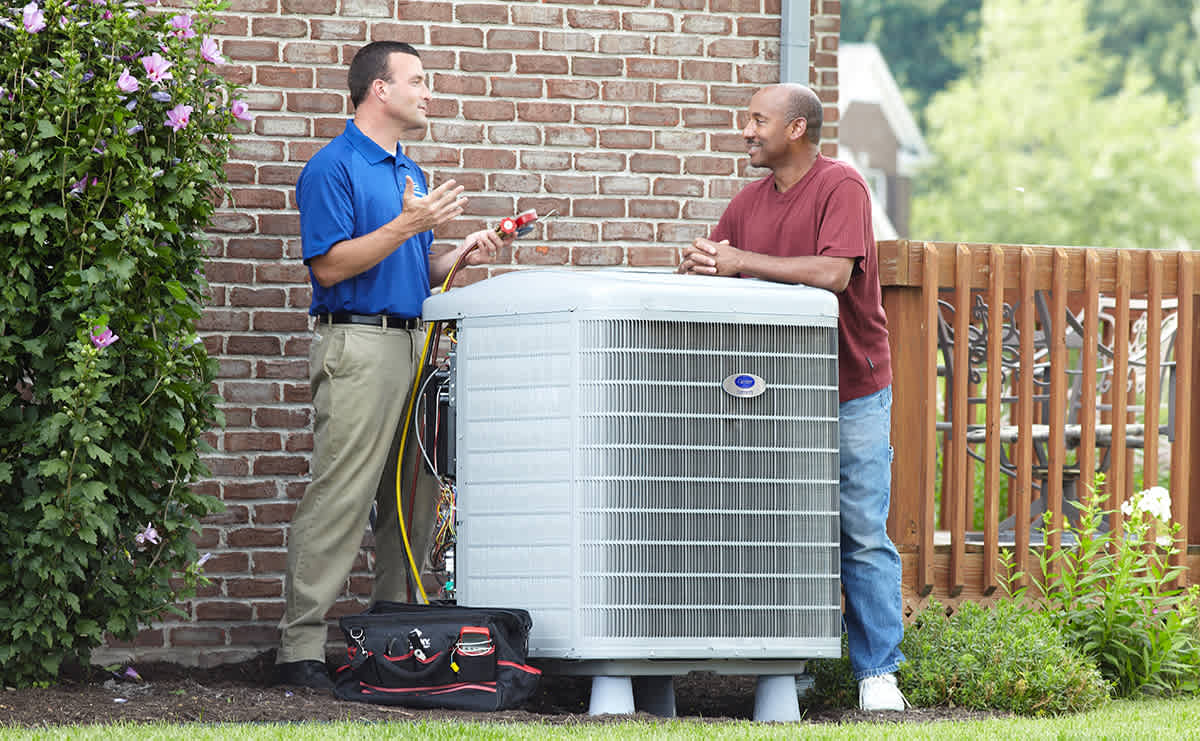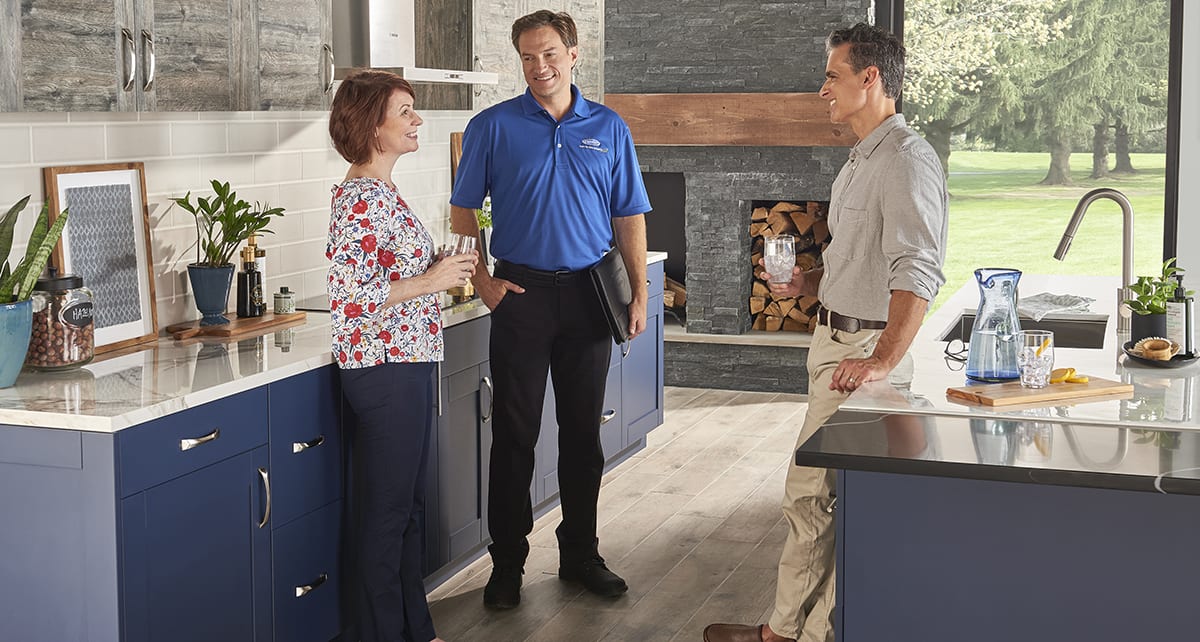Will Frozen AC Fix Itself? A Guide To Frozen AC Coils
By Travis Baugh
Frozen coils on air conditioners are a common problem that can hinder their ability to keep homes cool during the summer. It's important to understand the causes and recognize the symptoms of frozen coils so that the issue can be addressed quickly to maintain optimal performance and prevent further damage. And will a frozen AC fix itself? Learn that and more in this guide.

Causes of Frozen Coils on Air Conditioners
There could be several causes of frozen coils on air conditioners. One common cause is restricted airflow due to dirty air filters or blocked vents. When airflow is reduced, the condensing coils can become too cold, causing condensation to freeze on them.
Another possible reason for the coils on your air conditioner to freeze is a refrigerant leak. Refrigerant circulates through the AC coils, and a leak can cause the pressure to drop. This decrease in pressure can lead your coils to become excessively cold, resulting in ice buildup.
Signs of frozen coils include reduced cooling capacity, poor airflow, and water leakage around the unit. If you notice any of these symptoms, it’s essential to address them promptly to prevent additional damage to your air conditioner.
Ignoring frozen coils can result in decreased cooling efficiency and increased energy consumption. It can also cause more severe issues like compressor damage or a refrigerant leak is one doesn’t already exist. Addressing frozen coils in a timely manner can save you money on energy bills and extend your air conditioner’s lifespan.
There are some common misconceptions about frozen coils that need clarification. One is that running the air conditioner continuously will thaw the frozen coils. However, this can worsen the problem and cause more damage. It’s important to turn off the air conditioner and let the coils thaw naturally or seek professional help.
If you’re experiencing frozen coils on your air conditioner, it’s best to contact local Carrier dealer dealer who can diagnose and resolve the issue. They have the expertise and tools to safely thaw the coils, identify the root cause, and perform any air conditioning repair or adjustments.
Preventing Frozen Coils On Air Conditioners
- Regular air conditioner maintenance: Scheduling regular maintenance with your local Carrier dealer ensures that your air conditioner runs efficiently. During these visits, the technician will clean the coils, check refrigerant levels, and inspect the overall condition of your unit.
- Proper airflow: Ensure that all vents and registers are unobstructed and open. Blocked airflow can lead to inadequate heat exchange, causing the coils to freeze.
- Sufficient insulation: Make sure your home is properly insulated to maintain a consistent temperature and reduce the risk of extreme temperature fluctuations.
- Avoiding temperature extremes: Setting your thermostat to a moderate temperature range can help prevent the coils from freezing. Avoid setting the temperature too low, as this can cause the coils to drop below freezing, leading to ice formation.
Using a programmable thermostat can be a helpful tool in preventing frozen coils. With a programmable thermostat, you can set specific temperature ranges for different times of the day. This allows for more precise control over your home’s temperature, reducing the likelihood of extreme temperature fluctuations that can contribute to frozen coils.
Will Frozen AC Fix Itself?
Fixing Frozen AC Coils
If you’ve noticed that your air conditioner is not cooling effectively, frozen coils could be the culprit. Frozen coils can lead to reduced airflow and poor cooling performance. The following steps can help you troubleshoot the issue:
- Turn off your air conditioner. Continuing to run the unit with frozen coils can cause further damage.
- Check for any airflow restrictions that may be causing the coils to freeze.
- Inspect the air filter and ensure it is clean. A dirty or clogged filter can obstruct proper airflow, leading to coil freezing. Replace or clean the filter if necessary.
- Check if there are any obstructions around the air vents or return registers.
Thawing the coils safely is an important step. Do not attempt to speed up the process by using heat sources like hairdryers or heaters. Instead, allow the coils to defrost naturally. This may take a few hours or even overnight. Once the coils have thawed completely, you can proceed to the next step.

Contact A Carrier Dealer To Assist With Frozen Air Conditioner Coils
If you’ve followed the above steps and the problem persists, it’s time to seek professional assistance. Contact your local Carrier dealer who can diagnose the issue and provide the necessary repairs. They have the expertise and tools to identify any underlying problems and get your air conditioner back to optimal performance.

Frequently Asked Questions About Frozen AC Coils
LEARN MORE ABOUT AC ISSUES
- Learn why is my AC blowing hot air?
- Troubleshoot an Air Conditioner tips
- Why is my AC Fan Not Working?
- Discover the reasons for an AC leaking water
- Is your Air Conditioner Not Cooling?
- Why you should get an AC Tune Up

